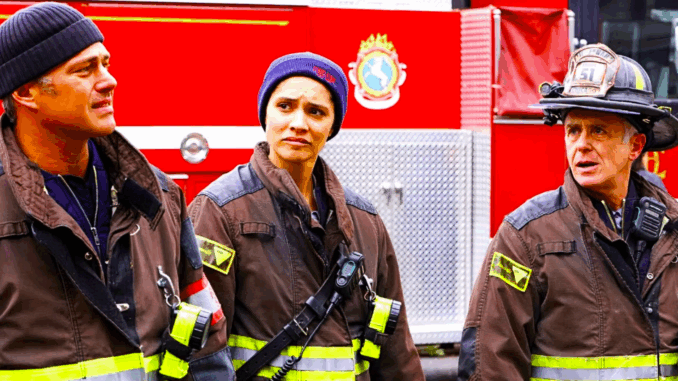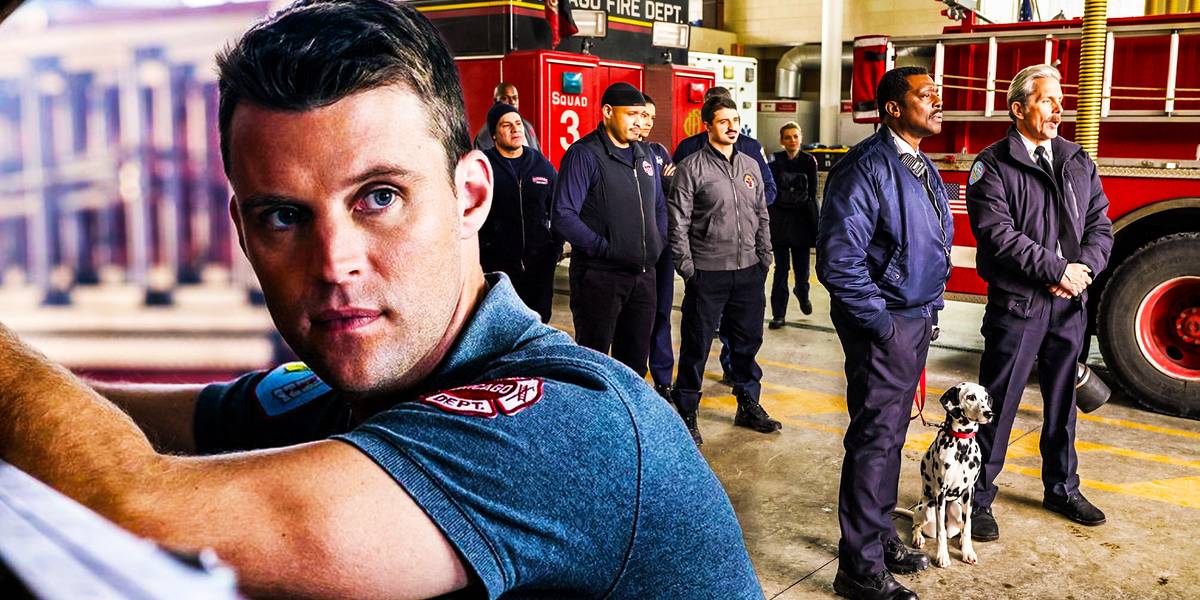
As Chicago Fire gears up for its highly anticipated fourteenth season, one thing is clear — the heart of Firehouse 51 is beating, but more fragile than ever. What was once one of the most emotionally stable houses in the One Chicago universe is now standing on shifting ground.
With beloved characters departing, key relationships fractured, and the firehouse’s identity in flux, Chicago Fire isn’t just telling new stories — it’s entering a period of emotional reckoning. For fans, this might be the most vulnerable the firehouse has ever been.
An Unfamiliar Feeling: Emotional Instability at 51
Throughout its long run, Chicago Fire has been defined by loyalty, legacy, and connection. Even when characters left, they often came back. There was a safety in knowing that no matter what, Firehouse 51 would endure.
But this time, things feel different.
With Sylvie Brett gone and Matt Casey seemingly not returning, one of the longest-running relationship arcs is now closed. Blake Gallo is gone too — quietly, without much acknowledgment — and Sam Carver’s status remains uncertain. These aren’t just names on a call sheet. They’re emotional anchors, and their absence has shifted the dynamic of nearly every character still on the roster.
For the first time, fans are beginning to ask: what happens when the family feels broken?
Severide’s Shadow Looms Large
No conversation about Chicago Fire’s fragility is complete without addressing Kelly Severide. Once the show’s central hero, Severide has slowly become a part-time presence, appearing in some episodes and vanishing in others — usually for arson cases or off-screen retreats.
While Taylor Kinney’s status with the show remains solid, Severide’s unpredictability is deeply felt within the story. Characters like Stella Kidd are constantly adapting, picking up emotional slack and making excuses to others in the firehouse. It’s exhausting — for her and for viewers.
The Severide-Kidd relationship, once the emotional spine of the show, now exists in fragments. If this is intentional writing, it’s bold. But if it’s logistical necessity, it’s hurting the firehouse more than it’s helping.
Who’s Left to Lead?
With Chief Boden facing his own uncertain path (possible retirement or reassignment has been teased), and Severide being intermittent, Chicago Fire is quietly entering a power vacuum.
The natural candidate to step up is Stella Kidd. She’s been a mentor, a leader, and a voice of reason — but she’s also spread thin. With every emotional burden falling her way (Gallo’s departure, Carver’s potential transfer, Severide’s absences), the question isn’t whether she can lead… but whether she should have to do it alone.
Then there’s Violet Mikami, who may become the new emotional core of the firehouse. Having endured loss after loss — from Hawkins to Brett — Violet’s resilience will likely define her arc in Season 14. But for now, she’s still finding her footing.
New Faces, New Frictions

The arrival of Jocelyn Hudon as Lyla Novak and the expansion of Rome Flynn’s character Derrick Gibson bring fresh energy to Firehouse 51. But new characters don’t always bring stability.
Novak is still a mystery. Gibson is haunted by a troubled past. Both are promising, layered additions — but they’re not replacements for what’s been lost.
Chicago Fire is taking a risk this season by not rushing to restore its former balance. Instead, it’s letting the cracks show. The firehouse isn’t whole — and that’s the point. That emotional fragility might be what gives Season 14 its depth.
When Legacy Feels Distant
One of the subtler tensions going into Season 14 is the feeling that Chicago Fire is slowly drifting from its origin story. The team that built Firehouse 51 — Casey, Severide, Shay, Dawson, Otis, Cruz, Boden — has been reduced to fragments. Only Cruz and Boden remain full-time, with Severide appearing occasionally.
The legacy still matters, but it feels increasingly distant. That emotional dissonance is reflected in the writing. Brett’s wedding was beautiful, but it also highlighted how much has changed. The firehouse no longer feels like the place where families are built. Instead, it’s a station trying to survive change.
There’s nothing wrong with evolution — but the challenge is keeping the heart intact.
The Fans Are Still Watching
What keeps Chicago Fire alive — even in this uncertain era — is the loyalty of its audience. Fans have followed these characters for over a decade. They’ve weathered deaths, departures, marriages, and new recruits. But Season 14 may be the biggest test yet.
This season will likely determine whether Chicago Fire is simply aging — or evolving.
If it embraces the emotional cracks, explores fragility with honesty, and allows new characters to grow organically, it may emerge stronger than ever. If not, it risks losing the thing that made Firehouse 51 beloved to begin with: its soul.
Final Thoughts: The Fire Still Burns, But The Foundation Is Shifting
Firehouse 51 has always been about more than calls and emergencies. It’s been about people who choose each other, who hold each other up when the world falls apart.
Now, with so many of those people gone or scattered, the house feels fragile — but still standing.
And maybe that’s the story Chicago Fire needs to tell this year: not one of perfect loyalty or invincibility, but of survival, rebuilding, and learning to carry on even when the past feels heavier than the present.
The fire’s still burning. But this time, the embers are glowing through the cracks.